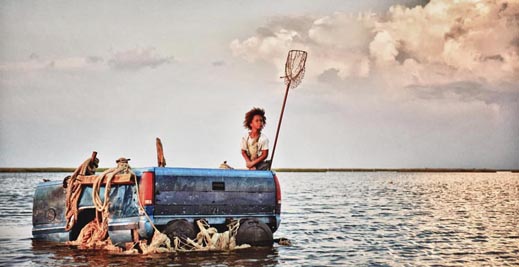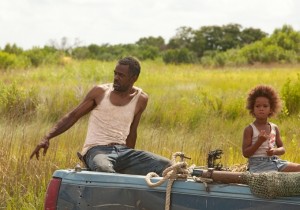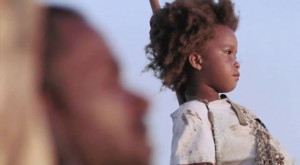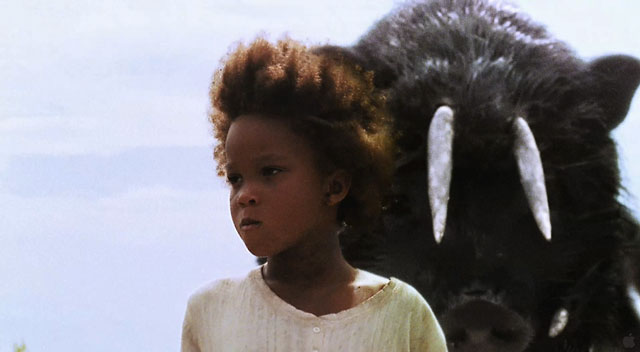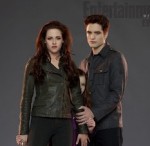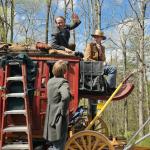Benh Zeitlin was almost unknown when his mystical, dreamy, but powerful Beasts of the Southern Wild won the Grand Jury Prize at the Sundance Film Festival. It’s the story of little Hush Puppy, a girl of the Louisiana Delta community called “the Bathtub.” She’s just a tiny thing, but she has a lot to deal with in the form of a sick father, rising waters, and prehistoric beasts breaking out of ancient ice and roaming the earth.
The movie plays as a love song to the wild,untamed, essence of America exhibited in the free, independent people of the Bathtub. I spoke with Zeitlin by phone and asked him what about Louisiana so drew him that he ended up making his home there. He said:
You know, it’s almost as if the move was a dissection of this intangible magnetism that brought me down there. I made this short film called Glory at Sea in New Orleans in 2006, thinking I was going to go back to New York afterwards. By the time that film was finished, I had this whole world that had been created and I was slowly realizing I was not going to leave. I was going to stay there, which I never imagined myself doing anywhere, really. …I was trying to understand what the magnetism was that was not allowing me to leave and what it was about Louisiana that I was so drawn to.
So what was the magnetism?
That’s the movie. It’s a place populated by extremely brave people. And an incredible tenaciousness and joylessness…And fearlessness, maybe most among all those things. It’s amazing to be in such a place that is so unafraid and so kind of openhearted and accepting. I think that comes out of that type of freedom that only comes with being incredibly unafraid.
I think one of the things that is driving the reaction to this movie is the sense of freedom, of determining your own destiny, of being responsible for your own life.
That was really the kind of concept that built the bathtub. There’s this place [in the Delta], their culture is not the culture of the film. It’s a real place. It’s down at the bottom of Louisiana out in the marsh, where you drive all the way to the end of the road and you drive three miles basically through the water on the tiny little road that you see in the end of the film. It’s this place that was totally off the grid. In the 60s, there were 200 families living there. Totally self-sufficiently. It was completely French speaking. Native American island. It had its own school. The entire economy was built on agriculture, fishing. No dependence on the civilized world. Now that place because of the environmental catastrophe that’s happening there, it’s gone from 10 miles wide to 2 miles wide. You can’t grow anything there. There are no animals. The fishing has gone downhill. There’s probably about 20 families left still holding out down there. That story was the inspiration for the film and this independent way of life that’s incredibly precarious at this point on the planet. The world is aggressively trying to push this type of independence off into the water and I wanted to make a film to celebrate people that are holding on to it.
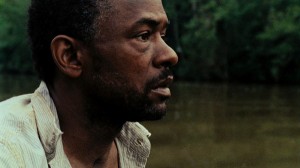
To the point that you’re almost rooting for a sick man NOT to get medical care. I mean, in general, I’m pro-medical care, but he doesn’t want it. How did you create those values and make them sympathetic?
They’re very organic to the people. Dwight is very much like that, the actor playing that role, has a lot of that in him. He has this strength and stubbornness. A lot of it was an expression of him as a person. He’s such a universally beloved man in the city. He runs this bakery that is a community center almost. Everybody knows Mr. Henry, everyone loves him. I knew his natural magnetism would keep people with him even when he was doing challenging things.
It’s a perspective that really moved me and made sense to me. I heard a lot when I went down and talked to people in bars and doing interviews, you get this sort of refrain of people saying, ‘I’m made by the marsh.’ This guy was talking about how he’s sort of this exotic plant that can only spout in this one place and is fed off of the land and off of his very specific environment. If you try to uproot him and plant him somewhere else, he would die, dry up and die.
Hopefully you get a sense in the film that there’s a spiritual death that’s going to happen if these people are taken out of their environment that will be much more painful and much more tragic than the type of danger that they’re facing. It made a lot of sense to me. I think it’s true. You meet people down there, if they break their leg or something like that, go out to a hospital, and all of a sudden they have cancer. And there’s a real distrust of medicine there. I don’t think it’s invalid. I think medicine works for people who believe in it. If you don’t believe in medicine there are other things that work and that take care of you. I don’t think it’s an invalid perspective and I hope you can understand that by watching the film.
There’s been a lot written about the actors you found for the film. How did that work? Were they locals just playing themselves?
No one was playing themselves. No one had any experience acting, but they’re all acting. All of the things that are happening now, none of us ever imagined in a billion years what was going to come of this whole thing. There was a real sense of adventure going into the project, a real atmosphere, very collaborative, very much like a family going on, sort of like a Swiss Family Robinson adventure. There was a real commitment to the moment and to the experience of it. I think that was something everyone was slightly bewildered by, but it was a thrill. It was incredibly difficult, but incredibly fun challenging experience. It felt like, ‘Ok family, we’re going to go climb the mountain, here we go.’ That was the emotion of it.
And the little girl? Quvenzhané Wallis?
Out of all the performances, hers was one of the most traditional as far as directing goes. She really understands, she probably can’t articulate it, but she really has an actor inside of her. We have a brother sister relationship. We sort of treat each other as equals. I talk to her like an adult. I play with her like a kid. We’re always playing games together. The set always had to be fun in a way that movie sets aren’t normally. Before we called action, we had to play catch with a water bottle and then knock a can off the table…lit always had to stay an environment for kids. As far as the scene work goes, we talk about what her motivation is, where she has to make a transition in the scene, and she is really able to internalize those things and perform as an actor. It’s a real performance; it’s not like a trick.
What are the aurochs?
I don’t think of the film as a fantasy film, I think about it like what it’s like to be six. There’s no real separation between reality and fantasy a lot of the time. I think about them from her point of view. It’s something she believes that is coming for her. She sees herself as this morsel of food on the planet that’s going to consumed by something bigger than her, whether it’s the storms or the water or these giant predators that are coming out of the ice age to get her. It’s a sort of expression of her fear and it’s a death that she senses coming closer and closer to her father, her town and herself. It’s also something that she’s he’s trying to unearth, she’s trying to understand. It’s really her secret power, it’s the ability to understand things and to relate to things and empathize with things that are trying to destroy her in a lot of ways. Her and the aurochs have this connection of being these beings on the verge of extinction. They come to an understanding and respect for one another as these creatures that are clawing for survival on the earth. Even though the auroch has come to eat her, it sees her, it has this respect for her as a fellow survivor, as a beast, as a strong animal.
It’s not like you go in and out of the world of the imagination. You’re living her experience and her experience doesn’t draw those lines.
Beasts of the Southern Wild opens June 27.

